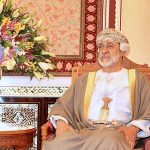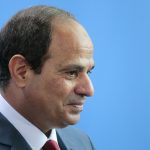Modi moved skies to restore ties with Arab world, but Nupur Sharma, Tejasvi Surya hurting it


At the time of writing, Qatar, Kuwait, Iran, Pakistan, Saudi Arabia, Oman, the United Arab Emirates, Jordan, Bahrain, the Maldives, the Organization of Islamic Cooperation (OIC), and Indonesia had all condemned the two BJP politicians’ derogatory remarks about the Holy Prophet made about ten days ago. India was not spared by the Taliban.
As if that wasn’t bad enough, Kuwait and Oman have banned the Akshay Kumar-starrer Samrat Prithviraj, which was launched to much hoopla last week with none other than Amit Shah attending the premiere with his entire family.
The Ministry of External Affairs (MEA) has raced to contain the backlash, referring to Sharma and Jindal as “fringe individuals” who do not represent the Narendra Modi government’s views. Except for a strike against the OIC, which the MEA accused of making “motivated, misleading, and mischievous statements,” the MEA has mostly kept quiet.
Related Posts
Inside the Indian government, there is embarrassment and awareness that the ruling BJP has failed to discipline some of its loudmouths, and that this is having an impact not only on internal politics but also on India’s meticulously established reputation as a secular state. India’s reputation as a power to be reckoned with has taken a major hit in the 75th year of its independence.
The truth is that the two BJP legislators’ hate speech and tweet had been in the public domain for several days before the Arab world became engaged – the action was done only after one Muslim nation after another began to chastise India.
Significantly, the 18 million-strong Indian diaspora in the Arab world appears to be concerned. Several are from the working class, having polished the Gulf’s gleaming cities with their sweat, but many more are members of the aristocracy in those countries. For the first time, the unspoken worry of becoming outsiders or of the relationships of trust they have built with the Arab elite over decades fraying is entering their worldview.
Ironically, the two Modi governments have worked tirelessly over the previous eight years to enhance relations with a number of Gulf countries. In February 2019, Saudi Arabian Crown Prince Muhammed bin Salman Al Saud was a valued visitor who was greeted with Prime Minister Narendra Modi’s characteristic embrace.
Qatar is thought to have a close security relationship with India. PM Modi has put a lot of effort into mending India’s relations with the UAE, even helping the Emirati royal family preserve face by blocking a Dubai princess named Latifa from visiting the country and returning her to her father.
The Arab world reacted with warmth and admiration. India’s trade with the Gulf States is booming, with the country importing $110.73 billion in FY 2020-2021, with Saudi Arabia accounting for the lion’s share at $43 billion. India’s economic survival is heavily reliant on Saudi Arabia’s — and earlier, Iran’s — oil economy. Qatar is the country’s largest supplier of liquefied natural gas (LNG) (LNG).
The Gulf accounts for at least two-thirds of India’s $85 billion in remittances from abroad. A free trade deal with the six member states of the Gulf Cooperation Council (GCC) is in the works. The UAE repaid the significant Indian community’s contributions by erecting a brand new temple, which Prime Minister Modi dedicated during his visit to Abu Dhabi in 2018.
Talmiz Ahmad, a former ambassador to Saudi Arabia, Omar, and the United Arab Emirates, told ThePrint that India crossed a red line by allowing the Holy Prophet to be criticized. Navdeep Suri, a former ambassador to the UAE and Egypt, recalled Tejasvi Surya taunting Arab women about their claimed lack of sexual skills in 2015 and again in 2019.
Rajendra M. Abhyankar, a former ambassador to Syria and a long-time Arab expert, referred to Surya’s recent comment in Australia comparing the Muslim invasion of India to the Holocaust, and questioned why MPs were not “properly trained” before being given political clearance and allowed to travel abroad.
Suri also described the events as a “diplomatic debacle” in the same interview. The demolition of the Babri Masjid in 1992 sparked similar outrage in the Muslim world, but the Grand Mufti of Syria recognized Abhyankar’s argument that this was a one-time occurrence that had gotten out of the government’s hands. Talmiz Ahmad, on the other hand, believes that the current normalization of anti-Muslim prejudice is a far cry from what occurred in 1992.





















